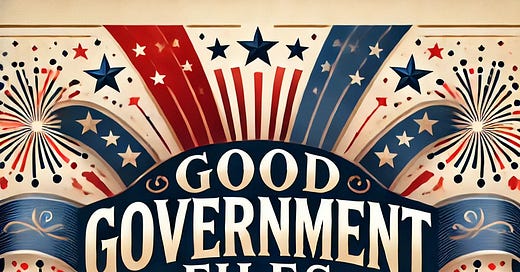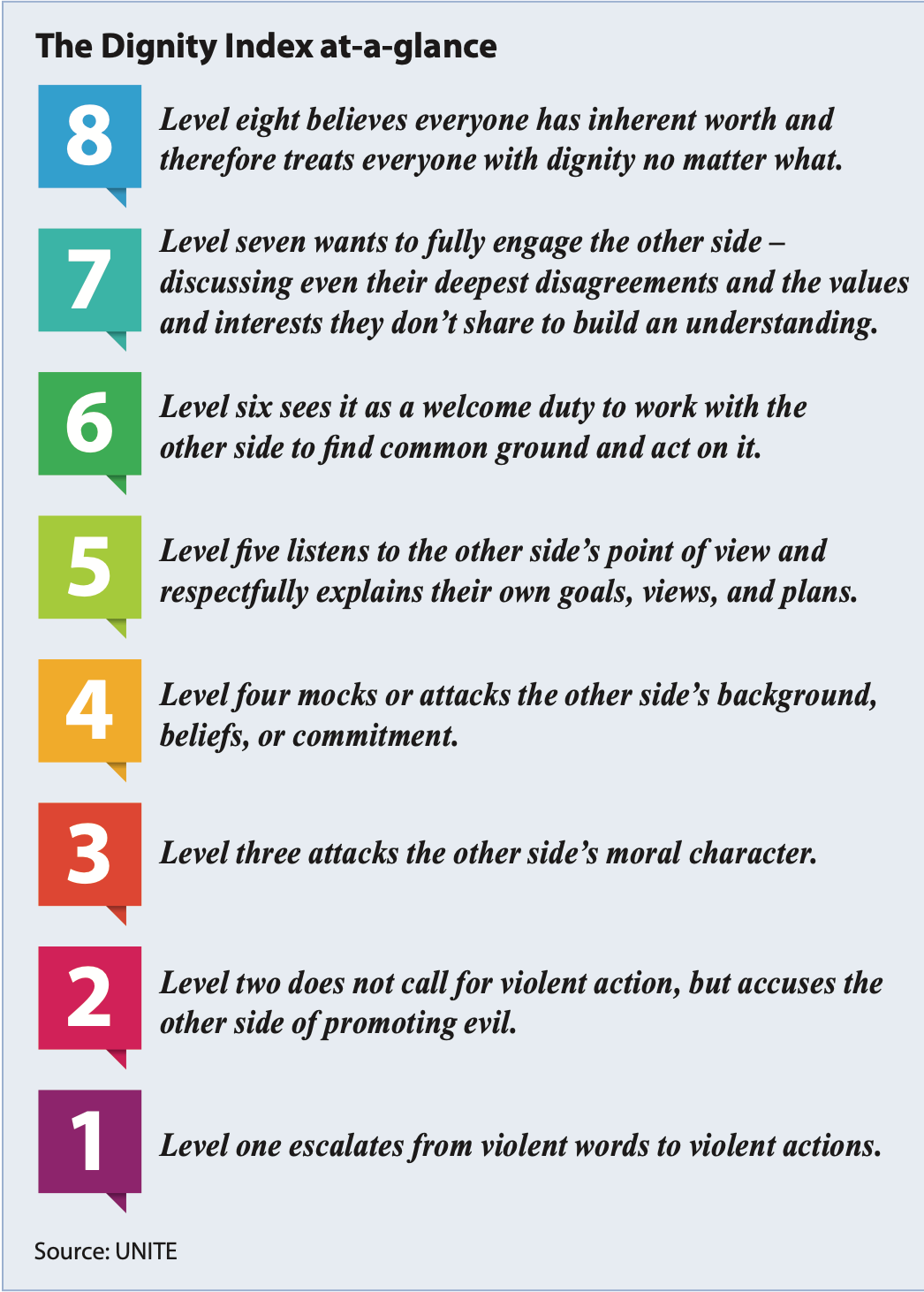As we step into 2025, it’s a natural moment for resolutions. In government, these resolutions should focus on rebuilding trust, embracing humility, and communicating with purpose. The past year reminded us that when institutions spin, condescend, or hide behind jargon, they lose the public’s trust. It’s time to return to basics: tell the truth, share the why behind the work, and listen deeply.
In this week’s newsletter, we share five practical resolutions to guide us into the new year and revisit GGF’s most popular posts in 2024 for inspiration. After all, progress starts with clarity and commitment.
We’re sharing the first post of the new year with all readers today, not just paid subscribers. To support my work of empowering government professionals with insightful, actionable content, please consider becoming a paid subscriber. It’s $7 monthly, or $70 a year. Here’s the button to help you do just that.
Let’s get the celebration of good governance started!
Resolution 1: Tell the Truth
You can’t govern well if people don’t trust you, and they won’t trust you if you’re dishonest. It pains me to start with this resolution, but some big revelations from the highest office in the land over the holidays make it necessary.
Before Christmas, reports surfaced that Biden administration staffers had been rescheduling meetings as early as his first year in office due to the president having “good days and bad days” with his mental acuity. This contradicted earlier claims that he was “sharp as a tack” and outpacing his younger staff. Shortly after Christmas, photos from the National Archives revealed that then-Vice President Biden had indeed met with his son Hunter’s business partners in China — contrary to previous denials.
Alas, the current administration was hardly alone in its deceitfulness. The practice has become rampant. Journalist Bari Weiss captured this perfectly in The Free Press, calling it “The Era of the Noble Lie.” She writes:
(I)t’s not that Americans have randomly stopped trusting the experts while softening toward the conspiracy theorists. It’s that so many experts have been exposed as partisan and unreliable and stopped deserving our trust. And too many of the ideas dismissed as the province of nuts have turned out to contain more than a kernel of truth.
How do our institutions and experts—who do tend to possess above-average knowledge of important subjects—come back from this?
Stop spinning, stop lying, and stop the condescension.
Amen and amen.
I’ve said it before, and I’ll say it again: it’s OK to deliver painful truths. Governing is about trade-offs, and people know leaders aren’t perfect. Admitting mistakes or challenges builds credibility.
Stop spinning, stop lying, and stop the condescension. Good mantra for 2025.
Feel like you’re already doing good job with truth-telling? A good test is how you answer this question from my mentors at Bleiker Training. It’s from their worksheets that help planning citizen participation strategy.
When a sensitive issue comes up on your project … does the “Cover Your Ass” argument ever prevail?
© Bleiker Training | consentbuilding.com
In 2025, let’s resolve to answer that with a firm No. The Era of the Noble Lie needs to end.
Resolution 2: Be Mission Driven
It’s more important than you think. I first learned this from the Bleikers during my training in 1998 and saw it play out during my 23 years at the City of Round Rock, Texas, where we tackled countless high-profile and controversial programs.
We’re not talking about mission statements here. Those are valuable, but your mission is something that resides in your gut — a deep understanding of why your work matters. The Bleikers put it well:
Too many members of the public don’t understand your mission, the importance of your mission, and how that mission is linked to someone’s quality of life.
Here are some key points to focus on:
Why matters more than What. Tell people why your agency exists and why your work is essential.
Tell your history. Use names, dates, and anecdotes to make your mission relatable.
Connect to quality of life. Highlight tangible impacts like reducing traffic, building trails, or improving emergency response times.
Communicate your mission consistently. When people see your work as straightforward and pragmatic, trust follows.
Resolution 3: Listen More
When people believe they’ve been heard, it transforms governance. I’m a huge advocate for statistically valid, community-wide surveys every two years. These surveys, conducted by third parties, should track trends and, if possible, benchmark results against similar agencies.
Here are a couple more thoughts from the Bleikers on listening to take with you in the new year.
Do you have an adequate understanding of all your stakeholders?
Are you tuned in to channels they use to communicate effectively?
Just as important is to respond to what you hear. Provide feedback, even when you don’t agree. Respectful engagement goes a long way toward building goodwill.
Here are links to my most recent posts on listening programs that go beyond surveys. In today’s digital world, it’s still essential to have face-to-face interactions with constituents to build genuine connections.
Resolution 4: Communicate with Dignity
The words we use can unite or divide. The Dignity Index evaluates whether language fosters connection or breeds division. It’s built on two ideas essential to good governing:
America’s divisions stem not from disagreement, but from contempt.
Focusing on dignity and addressing contempt can ease division.
Here’s more from UNITE, the non-partisan organization that created the index:
Political discourse that demonizes the other side is crippling our democracy and dividing our families. The cause? Words. Studies have shown that language rooted in contempt creates division, while language rooted in dignity can overcome it.
Here’s the Dignity Index they created. If your words align with levels 5-8, congratulations — you’re contributing to healthier public discourse.
If anyone is using the Dignity Index in practice, let me know. I’d love to feature real-world examples in a future newsletter.
Resolution 5: Be Creative
Government communications should never be boring. Even less flashy topics like street maintenance deserve creative treatment to capture attention without becoming overly silly.
If you’re ready to experiment with humor in your messaging, make sure to check out my good friend Jay Socol’s expert advice from one of my earliest posts — it’s a must-read before you craft your first comedic twist.
For more inspiration, look to Arlington, Texas. They spent $80.15 on a “Taylor Swift Way” road sign to sprinkle some Enchantment on the Eras Tour. The sign became a selfie magnet for Swifties and generated $4.9 million in earned media for the city.
Resolutions are only as good as the resolve behind them. In 2025, let’s commit to telling the truth, staying mission-driven, listening with intent, communicating with dignity, and embracing creativity. These aren’t just goals — they’re the building blocks of trust, engagement, and effective governance. The work we do matters, and how we do it matters even more. Let’s make it count.
As we look ahead with these resolutions in mind, it’s also worth reflecting on the lessons and insights from the past year. Up next, I’ll highlight some of Good Government Files’ most popular posts from 2024 — because the best way to chart a course forward is to learn from where we’ve been.
A Look Back at Top Posts
Before diving into the top posts, let me extend a heartfelt thank-you to you, dear reader. Good Government Files grew by over 50% last year, now reaching more than 1,200 subscribers. That’s a testament to the importance of our shared mission to highlight the best in governance.
Of the 94 newsletters published in 2024, here are the five most popular:
Beyond the Debate Stage: The Case for Respect and Centrism
The Biden-Trump debate left many of us feeling disheartened. This piece was my call for sanity, respect, and constructive governance — a message that clearly resonated.
I’ve Glimpsed the Future of Local Government Communications
The Texas Association of Municipal Information Officers’ 2024 conference wasn’t just inspiring; it was proof positive the future of this profession is in exceptionally capable hands.
Planting Seeds of Leadership and Hope in Ukraine
The remarkable story of one couple’s work in war-torn Ukraine deeply moved me — and, judging by the response, it moved you as well.
In the Eye of the Storm: Public Servants at Their Best
Highlighting the resilience and dedication of public servants during challenging times was a reminder of the heart of good governance.
Crunching the Numbers: How FWLab Delivers Context for Tough Choices
Enlightened governance isn’t a distant dream — it’s happening today in Fort Worth. This piece showcased how FWLab provides the tools leaders need to make informed decisions.
Thank you for making these conversations possible. If you missed any of these, they’re well worth revisiting.
Looking Ahead
2025 promises to be another year of innovation and inspiration in governance, and I’m excited to continue sharing stories that matter. Here’s what you can expect:
Twice-Weekly Publishing: We’ll stick to the current schedule — free-to-all TL;dr newsletters on Wednesdays and in-depth deep dives on Fridays, with full access for paid subscribers.
Spotlight on Artificial Intelligence: AI has been a recurring focus, and while I’ll continue to monitor developments, AI coverage will now be integrated into the new multi-topic TL;dr format. This shift allows us to explore a broader range of timely topics while keeping AI in the mix.
DOGE Initiatives: Efforts by the Department of Government Efficiency to enhance federal operations and reduce spending are gaining momentum. I’ll regularly share insights into their progress and impact in TL;dr.
As always, I’m here to celebrate the work of those driving meaningful change in our communities. If you have ideas, topics, or stories you’d like featured, drop me a note. Together, let’s make 2025 a year of progress and possibility.
Onward and Upward.







